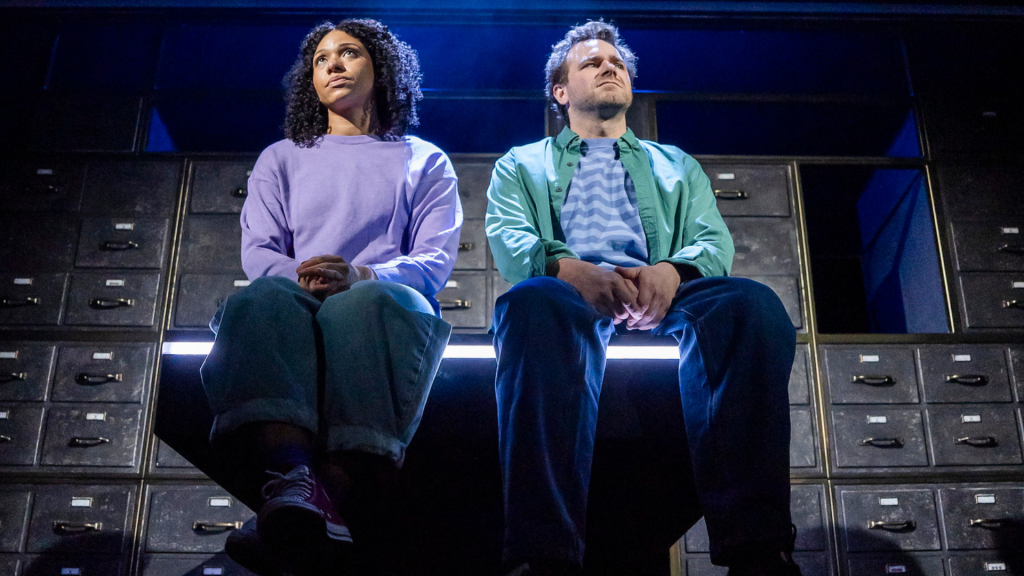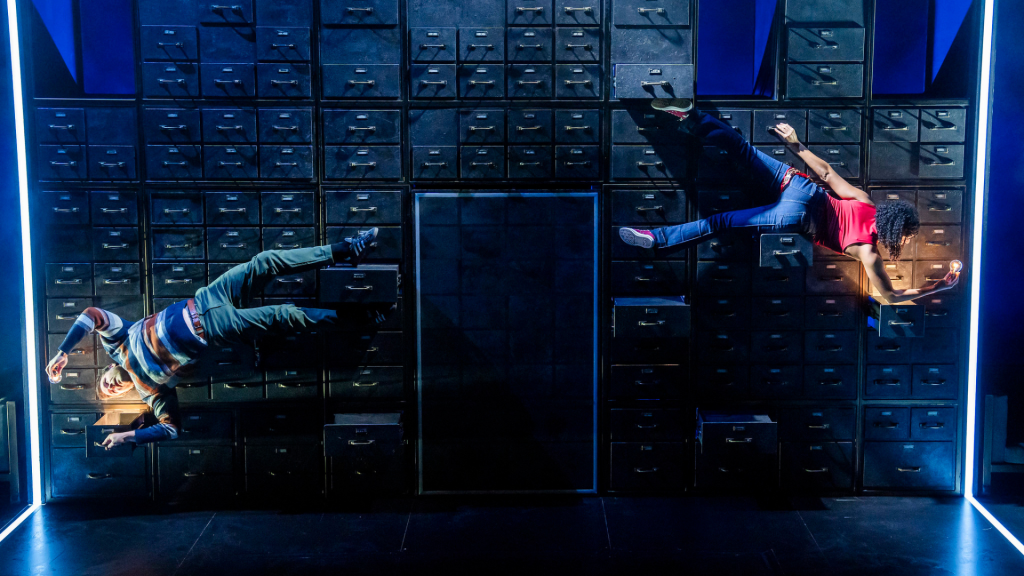
Frantic Assembly’s latest production of Lost Atoms has taken over the hearts of Salford audiences at The Lowry Theatre, documenting the innate and overconsuming nature of love.
These simple yet beautiful beats of connection between the two actors on stage help to accurately express how a relationship can sometimes feel like there is no life beyond your relationship and that nothing can infiltrate this ‘no man’s land’ which playwright Anna Jordan describes.
Anna Jordan focuses on how love shapes our lives and how memory can be warped to tell our own individual version of events. This is beautifully paired with Scott Graham’s direction, allowing both actors to accurately express themselves on this playground of a set, which helps to articulate the different stages of their relationship – moments of intimacy, moments of separation, moments of loss and moments of love.
From chance meetings to disastrous dates to meeting their parents, Joe Layton (who plays Robbie) and Hannah Sinclair Robinson (who plays Jess) play their individual characters in a partly funny and witty manner, whilst also remaining true and relatable at the same time. This helps to build a connection with us as an audience and articulate the sometimes-confusing nature of how a relationship can take over your life, as you become intoxicated by it, so that it almost becomes toxic.
As with any Frantic Assembly production, movement and physical theatre are incorporated into the piece heavily. This helps the audience to visualise these moments of intimacy and connection and allows the actors to explore the different ways the set can be altered to suit the location in which they need for the scene.
This is a credit to Andrzej Goulding’s scenic design, as many different locations are presented throughout the course of the production, which helps the audience go along with the two actors on stage on this journey that recounts their relationship and this struggle, for one of them, of not wanting to get to the end of it.

The thing that stays with me most after seeing this production is the beautiful work of Simisola Majekodunmi’s lighting design and how it helps the audience to understand the deeper meanings behind the play.
There is a moment at the end of Act One where Robbie says to Jess, “Don’t go Jess, don’t go.” What follows this is an intense moment where Jess responds with “this isn’t how it goes”, and there is that revelation almost at the end of Act One where Jess further responds with “YOU LEAVE ME,” as she breaks the fourth wall with a direct address to the audience.
This takes us back a little bit as an audience and makes us think deeper as to the pitfalls that we’ve seen so far in this relationship and how, at points, their stories haven’t quite aligned, begging the question of can their memories of the events can be trusted.
Simisola Majekodunmi uses this moment to her advantage as the lighting design transitions to a harsh white light surrounding the playing space, drawing our attention into what’s just happened, before cutting to black. This serves as a dramatic end to Act One.
Additionally, Carolyn Downing’s sound design has also proved to be the prominent thing to have stayed with me since seeing this production.

There is a moment during the storm sequence when Downing’s soundscape comes into fruition and perfectly embodies these feelings of loss which Robbie is trying to deal with. Robbie is sat upon the high shelving units at the back of the stage, head in his hands, and you can faintly hear his heartbeat getting louder and the stormy waves around him growing closer over the speakers. This is before the sound of him laughing as a child breaks through the noise, acting as a way for him to remember the times when his Mam was alive, a truly powerful moment for the audience to witness and quite an emotional one too.
I left that theatre almost lost for words, having to take a couple of moments to truly think about what I’d just witnessed and been a part of. It felt like a real community was created in that theatre as we took this wild ride through this almost life-changing relationship that spoke so clearly on this thing that is love and how our memories of events can alter, causing relationships to sour and drift apart.
I loved most the use of the set and how it could be manipulated to suit the means of the scene and how they used it at the end to highlight the different lives that they could have lived out if only love were a fairytale and if we didn’t have to face the problems of the real world.
★★★★☆














